Conference Program
Day 1: Tuesday, March 19
London
Welcome Coffee
08:00 - 09:00
Join your fellow delegates and speakers for pre-conference coffee before heading to your chosen session.
New York 1
Circular economy and sustainability – chemicals, materials and recycling - day 1
09:00 - 17:00
Moderator
 Wilma Dierkes
Wilma DierkesAssociate professor
University of Twente
Netherlands
09:00
Global update on recovered carbon black and tire-to-tire recycling
 Martin von Wolfersdorff
Martin von WolfersdorffRecovered carbon black expert
Wolfersdorff Consulting Berlin
Germany
As in previous Tire Technology Conferences, this presentation will give a global update on the recovered carbon black industry, covering the state of the industry, new technologies and new strategies. In 2024, the leaders of the industry are building industrial plants to fill the tire industry's requirements for recovered carbon black and circular feedstocks for synthetic polymers. Product standardization and precision engineering are key for supplying to the tire industry.
What the audience will learn
- The industrialization of recovered carbon black
- New pyrolysis technologies
- New tire-to-tire recycling strategies
- Recovered carbon black standardization and classification
- Recovered carbon black quality control
09:25
Tyre recycling metamorphosis: legislation and sustainability
 Alejandro Navazas
Alejandro NavazasScientific and policy advisor
European Recycling Industries' Confederation (EuRIC)
Belgium
The European Recycling Industries' Confederation will offer an overview of tire recycling trends within the EU, with a specific emphasis on the transformative influence of ongoing legislation. The effects of this dynamic regulatory landscape on tire recycling practices, currently under evaluation by the European Commission, will be presented together with their implications for the broader sustainability objectives of the tire industry.
What the audience will learn
- Tire recycling trends in the EU
- EU policies concerning tire recycling
- The potential of tire recycling to contribute to the overarching sustainability goals of the tire industry
09:50
BioButterfly: the sustainable pathway to produce sustainable bio-butadiene
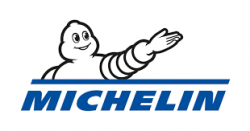 Dr Christian Priou
Dr Christian PriouProgram manager
Michelin
France
The BioButterfly project aims to produce butadiene from ethanol to manufacture innovative synthetic rubbers. Michelin, IFPEN and Axens have joined their efforts to revisit the Lebedev process and make it compatible with today's environmental and economic realities. A demonstration plant was built and is today producing 100% sustainable butadiene. This industrial prototype will demonstrate the technological and economic viability of the mass production of butadiene.
What the audience will learn
- Butadiene can be manufactured from ethanol
- Michelin and its partners have invested in this technology
- A working demo plant has produced bio-sourced butadiene
10:15
Lignin NR composites for high-performance sustainable tires
 Luciano Tadiello
Luciano TadielloAdvanced materials researcher
Pirelli Tyre
Italy
 Luca Giannini
Luca GianniniMaterials advanced research manager
Pirelli Tyre
Italy
This presentation will illustrate the introduction of lignin in compounds for high-performance tires, in particular following two directions: 1) surface chemistry modification of phenols and carboxy groups to boost lignin-rubber interactions and 2) latex compounding targeting to evenly disperse in rubber. Lignin derivatives were used in partial replacement of carbon black, resulting in good dynamic reinforcement and tensile strength before and after aging.
What the audience will learn
- Lignin can be used in rubber compounds
- Pirelli pushes sustainability with innovation
- Innovation stems from collaboration with universities into new industrial products
10:40 - 11:10
Break
11:10
Innovating on sustainable materials usage for UHP green tire design
 Li Yanguo
Li YanguoCompound and material research
Linglong Tire
China
Automotive mobility is today strongly driven by high-performance tire demand as well as environmental considerations. This presentation highlights the recent progress of Linglong Tire in the R&D of sustainable materials introduced in its tires and innovative manufacturing (process, equipment) to maximize energy saving. Additionally, it will outline Linglong's commitment to achieving carbon neutrality through the future use of further sustainable materials, while maintaining a high level of performance.
What the audience will learn
- Sustainable material usage for the tire industry
- The green process
- Energy saving in manufacturing equipment
11:35
Recycling end-of-life tires into new tires: the BlackCycle European project
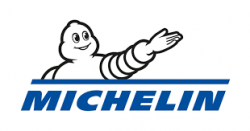 Dr Jean-Michel Douarre
Dr Jean-Michel DouarreBlackCycle consortium director
Michelin
France
The European project BlackCycle led by Michelin brings together 13 partners. The project, which started in mid-2020, aims to create an innovative circular value chain that goes from the collection of end-of-life tires to the integration of high-quality secondary raw materials into new tires. The project has made great progress, recently announcing the production of several tons of sustainable carbon black, made from end-of-life tire pyrolytic oil, and its successful introduction in a Michelin bus tire.
What the audience will learn
- Tire recycling
- Valorization of tire pyrolytic oil
- The European collaborative approach
- Secondary raw materials
- Sustainability and circular economy on tires
12:00
Comparison between existing tire recycling systems
 Jacob Peled
Jacob PeledExecutive chairman
Pelmar Engineering Ltd
Israel
Sustainability has become an immensely important criterion for tire companies in their expansion plans. The presentation will compare the most important tire recycling and rubber regeneration systems in the market, such as pyrolysis, chemical rubber conversion, physical grinding, regeneration, cryogenic conversion, extrusion/intermeshing and additional new developments. This will include retreading, as it is still the No. 1 tire recycling method.
What the audience will learn
- Sustainability has become an immensely important criterion for all major tire companies
- It is now both an issue and a tool to increase feasibility and profits rather than just an homage to the environment
- The most important tire recycling and rubber regeneration systems on the market
12:25 - 14:00
Lunch
Moderator
 Stephan Rau
Stephan RauManaging technical director (CTO)
German Rubber Manufacturers Association (wdk)
Germany
14:00
Circular economy for tires taking into account target product requirements
 Max Rehberger
Max RehbergerHead of sustainability services
TÜV Süd Product Service
Germany
In Europe, around 3.5 million tonnes of used tires accumulate each year. To drive circular economy, used tires should be reused or recycled as far as possible. The current end of life of tires is showcased and to what degree current business can be seen as contributing to circular economy. A focus is put on requirements for end products made out of tire recyclates, such as toxic hazards for the (end) consumer. Traceability of tire supply chains as well as risk awareness for secondary end products must be managed holistically to get to a working concept.
What the audience will learn
- Circular economy of used tires
- State-of-the-art used tire recycling
- Products made of worn tires
- Recycled content in new products
- Risks of recycled end-of-life tires in new products
14:25
How can connecting tires support the tire circular economy?
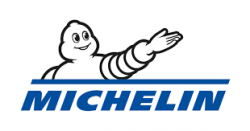 Christophe Duc
Christophe DucRFID initiative leader for original equipment and aftersales
Michelin
France
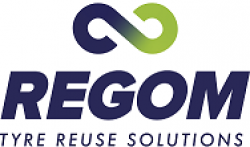 Arthur Wagner
Arthur WagnerCEO
Regom
France
End-of-life tires (ELT) are globally well collected, though their sorting has until now been very manual and exhausting. Automatization and digitalization will drastically change that by improving ergonomics and value and supporting the development of new recycling streams. Innovative solutions based on vision AI analysis and laser measurement of tread depths are starting to be deployed. RFID in tires and access to data will further unlock possibilities, fostered by the coming Digital Product Passport.
What the audience will learn
- The tire recycling process is starting to be automatized and digitalized
- Today's solution, based on vision AI analysis, drastically changes the way ELT are sorted but drives impressive progress
- Tomorrow's RFID in tires will further unlock sorting possibilities through access to data
- The combination of both technologies will bring value in the coming years while the number of tires with RFID will increase
14:50
A circular economy concept for the tire
 Dr Bernd Löwenhaupt
Dr Bernd LöwenhauptManaging director
Sumitomo Rubber Europe GmbH
Germany
The Sumitomo Rubber Group is working to promote the practice of ESG management as part of our defined philosophy: “Through innovation we will create a future of joy and well-being for all”. Toward fulfilling our purpose, we strive to be a positive force in bringing about solutions to various environmental and social issues throughout all of our business activities. We will introduce the next stage of our environmental efforts in our unique circular economy concept 'TOWANOWA'.
What the audience will learn
- Circular economy
- Sustainability
- Data utilization
15:15 - 15:45
Break
15:45
Enliten technology: enabling sustainability as a tire performance attribute
 Bill Niaura
Bill NiauraExecutive director, sustainable innovation and circular economy, Americas Technology Center
Bridgestone Americas
USA
Bridgestone is committed to sustainable mobility for our society and customers. Innovative, sustainable technology and products are key enablers to deliver on this commitment, and Enliten is Bridgestone’s technology strategy and framework. The presentation will demonstrate how Bridgestone is at the forefront of sustainable mobility transformation through strategic initiatives and transformative products.
What the audience will learn
- Introduction to Bridgestone’s Enliten strategy and associated technology framework
- Visualization of how the Enliten strategy is enabling Bridgestone’s sustainable mobility transformation
- Realization of sustainability as a performance attribute through transformative products
16:10
Upgrading rC for equivalent performance in existing carbon black applications
 Katie Tuttle
Katie TuttleMarketing director
Cabot Corporation
USA
The emergence of the circular economy necessitates tire recycling. Pyrolysis of waste tires has emerged as a leading technology. Pyrolysis creates two useable streams: tire pyrolysis oil (TPO) and reclaimed carbon (rC). While the use of TPO in various chemical processes is fairly straightforward, including as a carbon black feedstock, the use of rC is more complicated. The presentation examines the rubber properties achievable with various available grades of rC having different ash content, silica content and other properties. It will show that, as produced, these materials cannot satisfy the demanding performance targets of tire technology. It will then discuss some upgraded materials.
What the audience will learn
- The rC production process is very different from the carbon black process
- rC imparts deficiencies in rigidity and fatigue
- rC alone cannot be used at high substitution levels for carbon black in most applications
- rC can be upgraded to match dispersion and tensile properties for semi-reinforcing applications at 30% loading
- An alternate upgrade route can match most properties for reinforcing applications at 20% loading
16:35
Tire compound circularity through recycling components
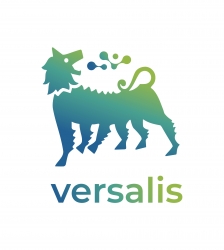 Dr Fabio Bacchelli
Dr Fabio BacchelliHead of technical management tyre, styrenics modification and SBR/BR compounding
Versalis
Italy
A major target for increasing circularity in the tire industry is to find a technology for re-compounding ELT tires. The sustainability of new tire production and retreading can be enhanced not only through circular-attributed polymers from R-oil but also by introducing recycled rubber from both devulcanization and micronization. eSBR with microdispersed ELT powder is combined with devulcanized and fresh rubber to maximize the recycled component. Curing, properties and aging are investigated.
What the audience will learn
- The circularity or rubber compounds
- Micronized rubber powder dispersion
- Compounding with devulcanized rubber
New York 2
Advances and innovations in material and chemical technologies - day 1
09:00 - 17:00
Moderator
 Dr Keizo Akutagawa
Dr Keizo AkutagawaVisiting professor
Queen Mary University of London
UK
09:00
Trends in reinforcing fillers 2024
 Paul Ita
Paul ItaSenior consultant
Notch Consulting
USA
This paper looks at current conditions and future prospects for reinforcing fillers (carbon black, precipitated silica) used in tire and rubber applications. Topics covered include the upcoming ban on imports of Russian carbon black into the EU and its effects on carbon black trade flows and prices; circularity and sustainability initiatives in the tire industry and their long-term effect on fillers; and the outlooks for alternative materials including recovered carbon black and RHA silica.
What the audience will learn
- Impact of impending ban on Russian imports
- Status of US environmental projects
- Prospects for RHA silica
- Prospects for recovered carbon black
- Overview of new investments in tire production capacity
09:25
React or non-react? Insights into silica/silane/functionalized SBR compounds
 Prof Anke Blume
Prof Anke BlumeUniversity professor
University of Twente
Netherlands
Functionalized SBRs are widely used for modern passenger car tire tread compounds. The functional groups are introduced in a silica/silane-filled S-SBR to enhance the polymer-filler interactions. However, what kinds of reactions take place in the presence of the functionalized SBR have not been clarified yet. In this study, different possible interaction/coupling reactions in a silica/silane compound with functionalized SBRs were investigated.
What the audience will learn
- Reactivity of functionalized SBRs
- Reactivity of sulfur silanes and silica
- Insights into reactions in a tire tread compound
09:50
High-performance tread for TBR tire application
 Kumar Vineet
Kumar VineetAssistant manager (R&D)
Balkrishna Industries Limited (BKT)
India
The tread compound must be engineered to achieve an optimized balance between rolling resistance, wet grip and abrasion resistance properties in tires. The TBR tread recipes used in this study are based on natural rubber and polybutadiene rubber blends with carbon black and silica dual filler systems along with compatibilizer to facilitate the filler dispersion in the rubber matrix. Substantial improvement of rolling resistance is achieved in tread compounds containing dual fillers.
What the audience will learn
- Performance and durability parameters
- Role of compatibilizer in dispersion enhancement
- Effects of dual filler system on functional properties of tires
- Hysteresis in tread compounds
- Next-generation TBR tires
10:15
Influence of polymer microstructure – property relation on tire performance
 Anup Mondal
Anup MondalSenior compounder
Apollo Tyres Global R&D BV
Netherlands
The focus of development in tire technology is on three critical properties: rolling resistance, wear and wet grip, collectively called the Magic Triangle. The challenge for tire development is improving the performance of each without deteriorating other performance. In tread compounds, SSBR and silica are usually used to maintain tire performance. It is very challenging to achieve and/or balance tread rubber performance as desired. This seminar will demonstrate the polymer microstructure-property relationship and its influence on tire performance.
What the audience will learn
- The impact of polymer microstructure
- The polymer microstructure-property relationship
- Polymer microstructure impact on tire performance
- The corresponding direction can be used to accomplish the preferred tire performance
- The design of tread compound
10:40 - 11:10
Break
11:10
New aspects of vulcanization for tires
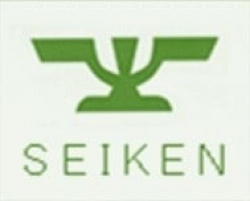 Yuko Ikeda
Yuko IkedaAcademic advisor and professor emeritus
Research Institute for Production Development and Kyoto Institute of Technology
Japan
The vulcanization chemistry of rubber is complicated. It has been difficult to understand the vulcanization mechanism in detail. This presentation introduces the sophisticated aspects of the CBS-accelerated vulcanization of isoprene rubber using ZnO and stearic acid. The combination of ZnO with the other curing reagents is crucial for the chemical cross-linking of the rubber molecules and controlling the structural network inhomogeneity in the vulcanization. This presentation will offer new insights into how rubber is made to improve tires and reduce air pollution.
What the audience will learn
- Newly observed characteristics of vulcanization
- New vulcanization mechanism
- Two-phase network morphology of vulcanizates
- Reinforcement effect by vulcanization
- Template effect of zinc oxide for controlling vulcanization
11:35
New low-Tg functional SSBR for EV tire
 Min Sung Kwon
Min Sung KwonChief researcher
Korea Kumho Petrochemical Co. Ltd
Korea
As the EV car market is expanding, demand for new SSBR is increasing. Kumho is focusing on developing SSBR for low RR and wear resistance. This presentation introduces low-Tg SSBR with next-generation functionalities.
What the audience will learn
- The trend of new SSBR
- EV tire requirements
- The silica compounding result
12:00
New thermoplastic elastomers from renewable sources for tire applications
 Dr Vito Capaccio
Dr Vito CapaccioRaw material senior specialist
Prometeon Tyre Group
Italy
Thermoplastic elastomers (TPEs) are a distinct class of copolymer characterized by dynamic polymer networks, specifically physical and reversible chain entanglements. The synthesis of novel sustainable TPEs tailored for tire formulation was carried out. This was made possible through the utilization of living-controlled radical polymerization processes and offers a promising avenue for the development of eco-friendly elastomeric materials for the automotive industry.
What the audience will learn
- Innovative synthesis of green TPEs via living-controlled radical polymerization processes
- Comprehensive characterization of TPEs copolymers' microstructure
- TPEs reactivity
12:25 - 14:00
Lunch
Moderator
 Paul Ita
Paul ItaSenior consultant
Notch Consulting
USA
14:00
Use of silane-terminated resins in a new high NR loading tread formulation
 Vincent Greff
Vincent GreffRubber technical manager
Cray Valley - TotalEnergies
France
Silane-terminated resins are proved to be powerful in EV tire formulation. A new step toward tires with higher sustainable content has been identified, reinforcing the versatility of such resins. It has been highlighted that silane-terminated resins are crucial to the incorporation of high natural rubber content within the tread formulation. In the present study we will show that silane-terminated resins can maintain the overall performance of tread with high natural rubber loadings.
What the audience will learn
- Incorporation of high NR content within a tread formulation is possible
- Unique behavior of silane-terminated resins
- Bio-content of the tire is increased (through NR and silane-terminated resins)
14:25
E2C solutions for sustainability and performance for tire applications
 Sundareswaran Venkatraman
Sundareswaran VenkatramanGlobal segment manager for E2C
Cabot Corporation
USA
In this presentation, Cabot will highlight advances in new E2C solutions that increase sustainable materials content, decrease tire company Scope 2 and 3 emissions, and deliver significant performance and sustainability benefits for tire applications.
What the audience will learn
- An overview of elastomer composite technology and its associated advantages
- The use of elastomer composites in different tire applications
- Elastomer composites reduce Scope 2 and 3 emissions by enabling lighter and more fuel-efficient products
- Recent advancements in elastomer composites improving tire performance
- Elastomer composites push durability boundaries and drive innovation through flexible formulations
14:50
Making it stick – SVHC-free tackifiers optimized for high-silica tread
 Dr Nancy Winchester
Dr Nancy WinchesterDirector R&D rubber & adhesives
SI Group
USA
Widely used phenolic tackifiers are increasingly coming under regulatory pressure. At the same time, the performance requirements of tires, especially for demanding applications, e.g. electric vehicles, are becoming ever-more challenging. As a leading supplier to the industry, SI Group has developed SVHC-free tackifiers with optimized performance even in high-silica tread compounds. A case study of selected new tackifiers will be presented and their application benefits discussed.
What the audience will learn
- The regulatory status and outlook for phenolic tackifiers
- Challenges in tire building of low-RR EV tires
- The new class of SVHC-free tackifiers developed at SI Group
- Structure/property relationships in SVHC-free tackifiers
- New optimized SVHC-free tackifiers for high-silica tread
15:15 - 15:45
Break
15:45
Multifunctional SSBR and LiBR for EV and ULRR tires
 Dr Juin-Meng Yu
Dr Juin-Meng YuPrincipal chemist
TSRC Corporation
Taiwan
TSRC uses state-of-the-art multiscale simulation and proprietary multiple-initiation synthesis and process technologies and designed the Gen 5 SSBR and Gen 4 low Tg polymers. The Gen 4 SSBR and LiBR products, targeting high silica-loaded EV tire treads, demonstrated 15-40% improvements in rolling resistance (RR), compounding efficiency and wear resistance. TSRC's newest Gen 5 SSBR further improved by over 10%. TSRC is devoted to incorporating renewable resources to maximize the sustainability impact.
What the audience will learn
- How we design the newest polymer using state-of-the-art technology to improve RR and wear
- How the low Tg polymer and LiBR improve the performance of high silica-loaded EV tire tread
- How TSRC is incorporating renewable resources to maximize sustainable impact
16:10
Functionalized low-Tg S-SBR and BR for high-performance tires
 Sven Thiele
Sven ThieleSenior R&D leader process and product development S-SBR
Synthos Schkopau
Germany
New synthetic rubber development must consider a variety of tire design requirements in a diversified tire market, environmental challenges and regulatory requirements. Currently, the priorities are low-wear characteristics, excellent wet grip and low rolling resistance properties of HP tires. This performance target can be achieved with Synthos's new functionalized low-Tg S-SBR solutions, which optimize tire compound performance in terms of low rolling resistance and high abrasion resistance.
What the audience will learn
16:35
Advanced BR and S-SBR for anti-abrasion improvement
 Sukyoun Kang
Sukyoun KangProfessional, Nd-BR project, high-performance materials
LG Chem
Korea
Changes in the automobile industry are occurring rapidly, including the expansion of electric vehicles and car-sharing services. Also, governmental policies emphasize resource reuse and carbon neutrality. Based on these environments, we developed novel Nd-BR with better polymer properties and good processability. We designed a new polymer with higher molecular weight, maintaining narrow molecular weight distribution for better LRR and long chain branch without chemical modification for better processability. This presentation will introduce LG Chem's sustainable synthetic rubber milestones and advanced BR and S-SBR that can improve tire performance for a sustainable future.
What the audience will learn
- Sustainability
- Synthetic rubber
- Anti-abrasion
- Rolling-resistance
Casablanca
Modeling, simulation, testing and analysis - day 1
09:00 - 17:00
Moderator
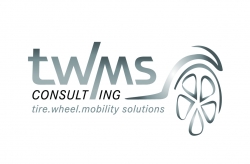 Dr Günter Leister
Dr Günter LeisterCEO
twms-consulting
Germany
09:00
LEON-T project: modeling the performance of an airless truck tire prototype – analyzing stiffness with FEA
 Dr Juan J García
Dr Juan J GarcíaProject manager
Idiada
Spain
The concept of airless tires has gained interest recently. In this presentation, an airless tire is modeled using finite elements and its radial, lateral and longitudinal stiffness are analyzed. It is found that the radial stiffness of the modeled tire is within the ranges of that of a conventional pneumatic tire, however, the longitudinal and lateral stiffness are 2.5 and 2 times higher, respectively. In future work, the same tire model will be used to study its modal behavior and noise characteristics.
What the audience will learn
- Airless tire
- Tire stiffness
- Tire noise
- FE modeling of the tire
- Modal behavior of the airless tire
09:25
LEON-T project: airless truck tire prototype – first test results
 Dr Ulf Sandberg
Dr Ulf SandbergSenior research leader
Swedish National Road and Transport Research Institute (VTI)
Sweden
In the EU project LEON-T, in WP5, one of the aims is to produce prototypes for a noise-reducing airless truck tire. This presentation will present the general idea behind the concept, then present the prototype in physical format and why it looks like it does. The first tests and observations for the rolling tire, as well as rolling resistance and hopefully also noise test results, will be presented. Finally the remaining work in WP5 and potentially also our ideas of how the prototype(s) may be optimized will be discussed. Co-authors are H-E Hansson, B Anantharamaiah, R Anadon and P Mioduszewski.
What the audience will learn
- Idea behind the airless tire produced in project LEON-T
- The overall design of the first prototype tire
- Results of first rolling tests
- Results of first rolling resistance tests
- Results of first (external) noise tests
09:50
Effect of ambient temperature on truck tire rolling resistance
 Matthias Ussner
Matthias UssnerSenior research engineer
Scania CV AB
Sweden
 Dr Jukka Hyttinen
Dr Jukka HyttinenResearch engineer
Scania CV
Sweden
EU labeling of tires mandates the measurement of rolling resistance at +25°C ambient temperature. For many purposes, such as the dimensioning of batteries for electric vehicles, this value is not representative enough. In this presentation, the transient rolling resistance of a representative truck tire was measured at different ambient temperatures (-30 to +25°C) in a climatic wind tunnel and a considerable temperature dependency on rolling resistance was found. Key findings from this study and an outlook on the range dependency of an electric long haulage truck on ambient temperature will be given.
What the audience will learn
- The temperature dependency of rolling resistance
- The importance of correct values for rolling resistance at low ambient temperatures
- The influence of increased rolling resistance on electric long-haulage truck range at low ambient temperatures
- The rubber temperature measurement point has an influence on rolling resistance estimation
- The change of transient rolling resistance at cold temperatures
10:15
Non-isothermal testing in rubber technology
 Prof Jorge Lacayo-Pineda
Prof Jorge Lacayo-PinedaHead of expert field for materials evaluation
Continental Reifen Deutschland
Germany
In common practice, rubber testing is frequently performed under simplified conditions assuming that isothermal curing or isothermal relaxation are adequate, regardless of the real application. A review of innovative methods for the non-isothermal characterization of rubber is presented here to motivate their broader use for better differentiation of rubber compounds in real processes.
What the audience will learn
- The concept of non-isothermal kinetics of vulcanization and examples of application
- The concept of non-isothermal relaxation and examples of application for cured and uncured rubber
- Innovative test methods for non-isothermal testing of rubber
10:40 - 11:10
Break
11:10
Abrasion testing with vehicle method – validation results
 Frederic Biesse
Frederic BiesseSenior fellow for tire physics and modeling
European Tyre and Rim Technical Organisation
France
 Dr Benjamin Oelze
Dr Benjamin OelzeDepartment manager
European Tyre and Rim Technical Organisation
Germany
Since 2018 ETRTO has been designing an abrasion rate method for regulatory purposes. The feasibility study identified a vehicle test on public roads as a suitable method for passenger car tires. Validation tests were done on 11 different tire specifications and tested four times each with this method, to estimate test dispersion due to influencing parameters. In this presentation, an overview of the results and conclusions will be given, reflecting the status of the test method development.
What the audience will learn
- The principle and the main parameters of the abrasion method for regulatory purposes
- The content of the validation plan, with tire effects, temperature effect, vehicle effect, circuit effect
- The evaluation of the method dispersion, which is important in a regulatory context
- The analysis of some possible causes of dispersion, and the possible improvements
- The status of this regulatory abrasion method and the next steps
11:35
The latest tire modeling and testing developments at Jaguar Land Rover
 Jan Prins
Jan PrinsTechnical group leader
Jaguar Land Rover (JLR)
UK
 Dr Martin Shaw
Dr Martin ShawSubject matter expert, Wheels & Tyres CAE
Jaguar Land Rover
UK
The presentation will cover the latest tire modeling and testing developments at Jaguar Land Rover, with a specific focus on the introduction of CDTire.
What the audience will learn
- The approach to tire modeling in JLR
- The approach to tire testing in JLR
- The introduction of the CDTire type of tire model in JLR
12:00
Characterization of Schallamach surface structures at tire tread material
 Dr Frank Schmerwitz
Dr Frank SchmerwitzSenior engineer
Continental Reifen Deutschland
Germany
The transfer of force from the tire to the road results in the formation of a boundary layer on the tread material. The characteristic feature of this boundary layer are wave-like patterns on a microscopic scale. These patterns form and change with each revolution of the wheel. They are modified by the detachment of rubber material and by the intake of road dust, and they are characteristic of the friction mechanism and the abrasion mechanism.
What the audience will learn
- Visualization of the dynamics of the change in the patterns using stroboscope principle opposite to footprint in indoor testing. The wave-like patterns are moving material and particles are detaching from the wave crests
- Suitable parameters for characterizing the surface structures
- Conclusions about the rubber wear mechanism and a certain correlation to the mass loss of the tire
12:25 - 14:00
Lunch
Moderator
 Joan Puig
Joan PuigTire development product manager
Applus Idiada
Spain
14:00
Tire performance sensitivity analysis in a new tread rubber compound
 Joan Puig
Joan PuigTire development product manager
Applus Idiada
Spain
The presentation will discuss a research project aiming to develop a new tire rubber compound material to tackle the Magic Triangle for a new generation of high-performance tires. This project effort uncovered correlations between rubber compound properties and tire performance, paving the way for significant breakthroughs. The project also delved into the development of novel wear performance testing methodologies and established an approach for validating tires with diverse tread rubber compounds.
What the audience will learn
- Project scope and motivation
- Literature review
- Rubber compound tests to validate and assess sensitivity
- Validation and testing – new tests and methodologies for wear performance
- Conclusions
14:25
Finite element method for tire tread pattern noise prediction
 Dario Garofano
Dario GarofanoR&D FEA engineer
Prometeon Tyre Group
Italy
 Dr Alessandro Bellini
Dr Alessandro BelliniSimulia IPC senior specialist
Dassault Systèmes Italia
Italy
During recent years, more and more electric vehicles have been introduced onto the market, making noise produced by tires more predominant and therefore increasing interest in this phenomenon. Also, new European regulations have arisen to reduce tire noise. In the presentation, the entire workflow to simulate the noise produced by a truck tire in a near-field indoor condition is shown by means of FEM with an explicit procedure and the use of vibro-acoustic simulation software, Abaqus & Wave6.
What the audience will learn
- Noise phenomenon applied to truck tire
- Finite element method, explicit procedure
- Vibro-acoustic software capabilities
- Tire tread pattern influence on tire noise
- Abaqus specific workflow for tire noise
14:50
'All about Tires': an AI-based specialized platform for tire science and technology
Dr Mohammad Behroozi
Vehicle dynamicist
individual contributor
USA
Vehicle dynamicist
individual contributor
USA
 Dr Georgios Mavros
Dr Georgios MavrosReader in intelligent mobility and vehicle dynamics
Loughborough University
UK
'All about Tires' is envisioned as a forthcoming AI-driven, community-based platform centered on advancing tire science and technology. Poised to address anticipated industry-wide needs, it aims to provide comprehensive support in areas including general tire knowledge, advanced modeling and simulation, manufacturing processes, design and engineering, and tire performance. The dynamic validity of this future platform will be upheld through meticulous community inputs, including peer reviews and expert verification. This future large language model (LLM)-based AI represents a pioneering step toward developing a specialized and interconnected platform within the tire industry.
What the audience will learn
- Understand the utilization of large language models (LLM) for predictive pre-trained translators
- Assess the precision and reliability of existing applications, including a critical examination of ChatGPT's effectiveness
- Recognize the industry-specific requirements driving the development of a specialized platform for tire science
- Explore the mechanisms ensuring the dynamic validity of the platform through community inputs, peer reviews and expert verification
- The practical implementation of an example AI-driven application
15:15 - 15:45
Break
15:45
Experimental measurements of rubber friction and flash temperature
 Tom Sanders
Tom SandersDoctoral researcher
Loughborough University
UK
According to Persson’s theory, flash temperature significantly influences friction but is notoriously difficult to estimate. This work presents a new friction testing device for field measurement of both near-contact temperature and friction. The correlation between test data and model predictions is studied in some detail and we also discuss the use of the proposed rig for friction model parameter identification.
What the audience will learn
- Background on flash temperature and the effect on friction
- The difficulties with validating and why low sliding speeds may not be representative
- How the device works, and the benefits of in-situ testing compared with lab testing
- Correlation between measurements and the physics-based friction and heating models
- How measurements can be used to parameterize friction and tire models
16:10
Novel applications of an advanced thermomechanical tire model
 Henning Olsson
Henning OlssonSenior director, technology
Calspan
USA
Calspan’s thermo-mechanical tire model has been developed to better address the current and future needs of the automotive industry. Its real-time capabilities coupled with its advanced contact patch model have opened new types of simulations and enabled advanced analysis of tire performance in unprecedented ways. The benefits of these enhanced capabilities are presented in various examples of practical applications, from reducing tread wear emissions to improving vehicle handling correlation.
What the audience will learn
- The state-of-the-art TM tire model
- Innovative applications in tire simulation
- Innovative methods in tire analysis with never-before-seen graphs
16:35
Automized test tools for high-throughput testing and production control
 Dr Dirk Kilian
Dr Dirk KilianRepresentative
Gibitre Instruments
Italy
Intense and automated testing during production for fast acquisition of material data is key in applications that demand high quality, such as tire. The control of material data in tire and tire-associated parts is a pain for industrial producers as lab testing requires considerable manpower and expense. The Italian company Gibitre Instruments is showing aids for these tests to amplify throughput in lab testing. Standard operations of testing were developed within automated setups for 24/7 lab testing without requiring additional staff. The focus of testing in this presentation is a laboratory press with an automated sample loader, a production MDR with automatic sample feeder. The connected software with SQL database work can be plugged into Industry 4.0 environments and offers new methods of AI data analysis. An example is shown for our DeMattia tester with AI software used for automated data processing.
What the audience will learn
- Automized tools for material data controll in production and QC
- 24/7 lab testing is possible without additioanl manpower
- MDR with automized sample loader
- DeMattia testing with AI for for automized data collection
- Database and Controll Software for immediate processing and visibility
Five Continents
Global tire industry – outlook and challenges
09:00 - 12:25
Moderator
 Riccardo Giovannotti
Riccardo GiovannottiSecretary general
Global Data Service Organisation for tyres and automotive components (GDSO)
Belgium
09:00
Ongoing transformation of the global tire industry
 David Shaw
David ShawCEO
Tire Industry Research
UK
This presentation tracks changes across the world’s tire industry, and looks to the future. For the big brands, changes include reviews of corporate strategies. In China, it has meant consolidation and international expansion. In India, it has meant adding capacity to meet increased demand. Everywhere, it means focusing on sustainability, digitization and developing new skills within the workforce. For the future, it means more flexibility, more collaboration and yet more focus on sustainability.
What the audience will learn
- Strategic direction of the tire industry
- What is happening in China
- What sustainability means for tire makers and suppliers
- How tire makers are managing the transition
- Changes in the manufacturing environment
09:25
Where is the tire market going?
 Robert Simmons
Robert SimmonsManaging director
GlobalData
UK
Recent years have seen huge levels of volatility in both the automotive and tire industries. The presentation will present the outlook for the tire industry, by major region, for both OE and replacement tires. With high inflation and pressure on household incomes, consumers are having to make choices about mobility and what replacement tires to purchase. This has led to growth in low-cost imports in many markets, placing pressure on tire production.
What the audience will learn
- The outlook for automotive production in the coming years
- The outlook for tire sales in the coming years
- The factors that will determine tire sales
09:50
Tire materials and technology arms race
 Guy Heywood
Guy HeywoodVice president
Hankook Tire Europe GmbH
Germany
Tire makers are fighting to deliver ever higher tire performance whilst transitioning their companies from tire manufacturers to tire technology and mobility solutions businesses and working toward 100% sustainability goals. These business drivers are leading to accelerated innovations in the fields of materials science, AI/supercomputing and 3D additive manufacturing. These three technologies are being combined to offer stepped improvements in tire performance from the first to last millimeter of wear.
What the audience will learn
- Drivers for accelerated change in the tire industry
- Key technology innovations being used by tire makers to answer the challenges of the mobility revolution
- What these technologies deliver to all stakeholders in the mobility industry
- Who will win in the fight for relevance in the new mobility of our future
10:15
Are your tires compliant when worn? Testing the new regulatory requirements
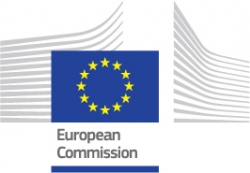 Dalia Broggi
Dalia BroggiProject manager - scientific research
European Commission
Italy
A new amendment to UNECE Regulation 117 introduces requirements for wet grip of worn tires to assess tire performance at end of life. For type approval, artificially worn tires are generated by mechanically removing tread material (i.e. buffing). To assess how well a buffed tire replicates a naturally worn tire, we tested four tire models comparing new, naturally and artificially worn samples of each model. We carried out the regulatory test and other representative dynamic maneuvers.
What the audience will learn
- European Commission's role in Europe market surveillance activities
- Recent developments of regulatory framework for worn tires
- Performance comparison of new, worn and artificially worn tires
10:40 - 11:10
Break
11:10
Holistic TBR new product development and improvement approach
 Haluk Kizilay
Haluk KizilayManaging director
TIC-Tire Industry Consulting
Germany
New product development (NPD) is a key process for TBR tire groups, and NPD time is crucial. TIC’s holistic NPD approach enables you to launch world-class products faster and more cost-effectively than ever. It would be useful for all tire manufacturers to have an efficient and effective NPD process. The presentation will outline technical challenges in TBR, how to establish an effective NPD process, tire eng. enhancement, TBR virtual model validation and verification, TBR field engineering, and other important points.
What the audience will learn
- The latest technical challenges in the TBR tire group
- How to establish an effective NPD process
- How to create a winning technical team
- A holistic view of TBR new product development
- How to establish a TBR field engineering system
11:35
The role of the tire industry in developing electric mobility
 Dr Amirhossein Shahdadi
Dr Amirhossein ShahdadiManager of disruptive and innovative technologies
Barez Industrial Group
Iran
Considering the different aspects of EVs, there are three main issues that must be considered about electric vehicle tires. Tires for electric vehicles carry a heavier load and have to withstand high instant torque, so the tire construction should be more robust. Greater mass and increased inertia mean longer braking distance, so the tire grip should be improved. Minimal rolling resistance is essential for electric tires, so tires for electric cars offer a smoother and low-impact ride.
What the audience will learn
- Electric mobility, its challenges and future outlook
- New trends in electric vehicles
- The effect of electric mobility on the tire industry
- The market for tires for electric vehicles
- The specifications of tires for electric vehicles
12:00
325/90 R24.5 tubeless – new size introduction replacing 325/95 R24 tube type
 Fernando Filippi
Fernando FilippiProduct development senior specialist
Prometeon Tyre Group Srl
Italy
Recently, more and more tube-type applications have been migrating to tubeless and the many well-known advantages this offers, but some sizes are still not properly addressed – for example, the 325/95 R24 in the Middle East market. The usage of 325/95 R24 in TL rims was previously proposed, but assembly process constraints prevented this solution from becoming widespread in the market. To solve this issue, a new tire size standardization was requested from ETRTO as the start of a new tire project.
What the audience will learn
- Tubeless tires advantages
- Tire/wheel assembly weight reduction and subsequent truck payload capacity increase
- Increased tire load capacity
- New standard rim development in partnership with Accuride – 9.0
- Sustainability
12:25 - 14:00
Lunch
Five Continents
Understanding and mitigating tire road wear particulates
14:00 - 16:35
Moderator
 Nick Molden
Nick MoldenFounder and CEO
Emissions Analytics
UK
14:00
An update on TIP-sponsored tire-emission research and action on mitigation
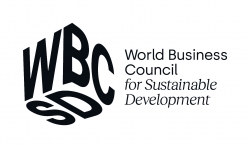 Daniel Giesen
Daniel GiesenResearch manager
World Business Council for Sustainable Development (WBCSD) Tire Industry Project (TIP)
Netherlands
We will share an update on recent TIP-sponsored tire-emissions research and new work that aims to develop a better understanding and promote action on the mitigation of tire and road wear particles (TRWP).
What the audience will learn
- Recent developments in industry-sponsored tire-emissions research
- An introduction to ongoing and new additions to TIP's tire-emissions workplan
- An overview of TIP's work to better understand and promote action on TRWP mitigation
14:25
Emissions of tire road wear particles by vehicles
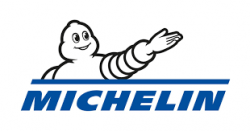 Frederic Biesse
Frederic BiesseSenior fellow for tire physics and modeling
Michelin
France
Michelin is studying the environmental impact of our tires to understand the key levers and effectively reduce them. Tire and road wear particles (TRWPs) emitted during use affect energy efficiency and longevity. TRWPs are being studied intensively in the Michelin research centers, to understand their generation and emission mechanisms so that innovative solutions can be proposed. Our latest findings about TRWP properties and emissions will be presented.
What the audience will learn
- Fate of TRWPs in the environment
- Contribution of TRWPs to air pollution
- Influencing factors of airborne TRWP emission
- Impact of tire design on TRWP emission
14:50
Challenges in the generation of tire wear particles indoors
 Nadine Aschenbrenner
Nadine AschenbrennerTest engineer
Continental AG
Germany
Continental's research and development center investigates tire emissions in the form of tire and road wear particles (TRWP) intensively. Tire wear and therefore the resulting particles are influenced by several factors. In this presentation, outdoor TRWP samples will be compared with tire wear particle (TWP) samples created on an indoor machine drum. Various parameters that influence the particle size distribution and therefore need to be carefully controlled will be presented and discussed.
What the audience will learn
- Summary of current results of the latest TRWP outdoor studies with Continental's test vehicle
- Various parameters that influence the particle size distribution at the drum
- Comparison of TRWP from outdoor tests and TWP from indoor tests
- Challenges in the reproduction of realistic tire wear particles at the machine drum
- Recommendations and hints for realistic particle generation indoors
15:15 - 15:45
Break
15:45
Evaluation of tire wear particle leachability
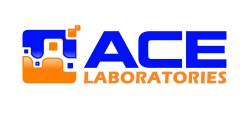 Erick Sharp
Erick SharpCEO
ACE Laboratories
USA
This study evaluates the leachability of tire wear particles (TWP). Variables include high silica tread compounds versus non-silica tread compounds, slip ratios and G force, and vehicle weight. Tire wear particles will be generated on the Ueshima RTM friction tester utilizing an asphalt test track. SEM imagery is performed on all TWP samples to compare morphology structure. The rate of leachability of 6PPD, zinc and hydrocarbons is conducted on each TWP sample. The leachability analysis includes an environmental exposure period, a distilled water soak and analysis of the water by GC-MS.
What the audience will learn
- The difference in the leachability rate between silica tread compounds and traditional carbon black tread compounds
- The difference in TWP between the traditional weight of combustion engine vehicles and heavier electric vehicles
- How surface area and morphology are impacting the leach rate of TWP
- The difference in size and leachability of TWP between acceleration torque, braking force and standard cruising
- How much of an impact the road surface has on the morphology of TWP
16:10
Degradation of tires during regular operation
 Dr Radek Stocek
Dr Radek StocekGeneral manager
PRL Polymer Research Lab
Czech Republic
Several factors influence the wear and lifetime of tires. The biggest challenge is to increase the resistance against degradation of tires, which leads to various wear phenomena, reduces the operating time of tires, increases overall costs and pollution and provokes higher consumption of resources. The recent research demonstrates what a huge step has been taken in the meantime to improve the prediction of wear under specific operating conditions for tailor-made tires.
What the audience will learn
- Survey of the detailed mechanisms that harm rubber and lead to wear
- Novel technical characterization of degradation phenomena will be introduced in detail
- Clarification of how the load applied to the tire relates to the type of degradation
London
Advances in manufacturing, including AI, Industry 4.0 and sustainability - day 1
09:00 - 17:00
Moderator
 Bill Henderson
Bill HendersonHead, USA tire industry
Siemens Industry
USA
09:00
Navigating the complexities of rubber development: bridging AI and DoE
 Hans-Joachim Graf
Hans-Joachim GrafConsultant
H-JG Consulting
Germany
This presentation explores the fusion of design of experiments (DoE) with artificial intelligence (AI) and machine learning (ML). AI utilizes historical data like words or facial pixels, relying on neural network algorithms. However, AI demands extensive data, an issue in rubber development where data is abundant but lacks standardization. These data sets exhibit unique measurement errors, making them distinct from the norm. Storing such complex data in the cloud is complicated, with compatibility issues between polymers and cross-linking systems, and insoluble ingredients posing challenges. Integrating this heterogeneous data is a formidable task, as conventional cloud storage falls short.
What the audience will learn
- The potential synergy between design of experiments (DoE) and artificial intelligence (AI) in industrial applications
- How AI leverages historical data and neural network algorithms for analysis and decision making
- The unique challenges of data abundance and non-standardization in the context of rubber development
- The complexities of dealing with data sets characterized by atypical measurement errors
- The limitations of traditional cloud storage in handling complex compound data
09:25
AI applications in tire R&D and manufacturing
 Arjun Balasubramanian
Arjun BalasubramanianGroup manager - OE product development - passenger vehicle
Apollo Tyres
India
 Hitesh Joshi
Hitesh JoshiHead - passenger vehicle, R&D APMEA
Apollo Tyres
India
Artificial intelligence (AI) is making significant strides in various industries, and the tire R&D and manufacturing sector is no exception. The presentation will highlight how AI is being applied in this field, such as material design and optimization, utilization of large test data to predict tire behavior and process optimization.
What the audience will learn
- Seamless integration of AI into both R&D and manufacturing processes to enhance the overall efficiency, quality, and innovation in the tire industry
- How the gathered real time data from many sensors in the machines enables insights into the processes & enabled Real time Data Analysis
- How Apollo started its journey towards building self-learning program to optimize tire designs for better performance, durability, and fuel efficiency
- Connecting data from the filed i.e. digitisation of customer complaints & feedback etc
09:50
Advanced AI/ML capabilities for efficiency and quality in tire manufacturing
 Mithun Nagabhairava
Mithun NagabhairavaSenior manager, data science
Rockwell Automation
USA
In a landscape marked by significant labor shortages, hundreds of material compositions, and complexities inherent in tire manufacturing, maintaining consistent tire quality poses a formidable challenge due to variations in raw materials, production conditions, and rheological properties that affect material flow and behavior. However, advancements in artificial intelligence and machine learning (AI/ML) combined with well-established bedrock of optimal control theory can help address these challenges effectively. During this session, we'll delve into real-world examples showcasing how AI/ML technologies are transforming tire manufacturing, resulting in enhanced quality and efficiency. By leveraging advanced closed-loop optimization and machine vision capabilities, manufacturers optimize various stages of production, from mixing to final inspection.
What the audience will learn
- Progressing towards Autonomous Tire manufacturing through AI integration.
- Utilizing AI from mixing to ensuring consistent weight measurements during extrusion to minimizing out-of-tolerance events at tire building machines and optimizing vulcanization properties during curing.
- Best practices for the responsible deployment of AI capabilities in tire manufacturing, ensuring alignment with industry standards and ethical considerations.
10:15
Joint forces for the sustainable tire production of tomorrow
 Guido Veit
Guido VeitVice president sales plastic and rubber
Zeppelin Systems
Germany
Traditional tire recycling processes don’t meet the expectations of a circular economy in terms of quality and quantity for secondary raw materials or recyclates. That’s exactly where Zeppelin Systems with its international partners of the Zeppelin Sustainable Tire Alliance comes in. With innovative solutions and joint forces, new goals can be achieved in terms of reliability, stable quality and sufficient quantity through precise material handling and professional plant engineering.
What the audience will learn
- Status quo in the tire recycling process and potential
- Recyclates as a key success factor for a circular economy
- How joint forces can make an impact on the tire recycling process
10:40 - 11:10
Break
11:10
Transforming production with AI
 Harm Voortman
Harm VoortmanPresident and CEO
VMI Group
Netherlands
AI and machine learning (ML) are already starting to revolutionize key aspects of manufacturing, from supply chains to production automation. In this presentation, Harm Voortman, who is both CEO of VMI and executive leader for smart technologies at the TKH Group, explains how AI developed in TKH smart tech companies is now being introduced to VMI’s already highly automated machines. Harm will show how the synergies between group companies and their core technologies are leading to performance benefits for tire companies in the form of reduced scrap, lower energy costs and higher-quality outcomes. Highlights will include an exploration of how different technologies (such as camera systems and ML) can co-evolve to deliver exponential improvements; how collaborative development accelerates the creation of new concepts; and a clear vision for AI adoption over the next five years.
What the audience will learn
- An exploration of how different technologies (such as camera systems and ML) can co-evolve to deliver exponential improvements
- How collaborative development accelerates the creation of new concepts
- A clear vision for AI adoption over the next five years.
11:35
AI-based algorithm for optimizing the final mixing processes of rubber
 Tim Bommer
Tim BommerR&D engineer
HF Mixing Group
Germany
The presentation will cover the mathematical modeling of the final rubber mixing process, optimization of the final rubber mixing process on a laboratory scale, constant rotor speed, variable rotor speed and the optimization of final rubber mixing processes in the field.
What the audience will learn
- Mathematical modeling of final mixing processes in internal mixers
- AI-based optimization of mixing processes
- Energy reduction in the mixing room
- Efficiency increase in the mixing room
12:00
Intelligent and flexible electromechanic bead lock system
 Stefano Roselli
Stefano RoselliTechnical director
Marangoni Meccanica
Italy
Marangoni Meccanica has patented a system to automate the loading and unloading of carcass and GT. Compared to the pneumatic variant, it has the advantage of complete and precise control over the diameters of the flanges, even during shaped carcass rotation. Electronic control by drive allows precise control of the bead lock force and is adjustable by recipe and adaptable during the cycle. Fluid and continuous expansion and contraction movements allow the delicate management of carcass and GT, preventing surface damage to the bead area. Main features include user-friendliness, easy maintainability and safety.
What the audience will learn
- Innovative bead lock system for automatic tire building machine – technological innovation
- Fast and reliable movements for reducing cycle time – ROI increase for customer
- Wide range of applications – capex reduction
- Reduced tooling changing down time and easier maintenance – improving maintenance
- Precise force and position control for flexible operation – quality output
12:25 - 14:00
Lunch
Moderator
 Dennis Preick
Dennis PreickSenior process engineer rubber processing tire extrusion
Troester GmbH & Co. KG
Germany
14:00
High-speed tire uniformity optimization process (HSTUO) in production
 Luc De Bruyne
Luc De BruyneOEM tire and wheel assembly R&D specialist
Eurofit
Belgium
The presentation will discuss reducing the vibration forces of wheels at a driving speed of 120km/h with balancing weights. No need for balancing machines and low-speed TU machines anymore in a TWA assembly process.
What the audience will learn
- Production of wheels with the lowest vibration level at a defined speed
- Increase driving comfort at a defined speed with heavy EV cars
- Reduction of wheel rejections in a production process
- No need for standard low-speed TU and balancing machines in a production process
- Improving the TU yield level with the tire suppliers
14:25
Tire and wheel assembly issues from OEM view and technical solutions
 Dr Günter Leister
Dr Günter LeisterCEO
twms-consulting
Germany
Vehicle manufacturers use automatic tire and wheel assembly lines for tire mounting. With the help of these systems, it is possible to produce high-quality assembled wheels in a short time and at a low cost. The specifications for these systems are precisely defined by the vehicle manufacturers, but this automatic process also has its challenges and these need to be recognized and solved. This presentation additionally points out phenomena that cannot be eliminated with the classical analysis methods.
What the audience will learn
- Tire wheel assembly challenges
- Bead seat optimization
- High-speed tire uniformity
- OEM requirements for the assembled tire-wheel system
14:50
Global problems require mutual solutions – SiGREEN dynamic PCF evaluation
 Peter Haan
Peter HaanHead of global vertical tire
Siemens AG
Germany
Due to increasingly stringent regulatory requirements, industrial companies are faced with the major challenge of seamlessly tracing the entire product carbon footprint (PCF). This can only be achieved through a continuous data exchange along the entire value chain. This requires digital solutions that all connected companies can trust. Go beyond the static reporting of CO2 emissions and start managing product decarbonization with the help of dynamic PCF.
What the audience will learn
- Sources for product carbon footprint (PCF)
- Challeges based on today's static PCF evaluation
- How to implement dynamic PCF evaluation
- Benefits for all participants in the value chain
15:15 - 15:45
Break
15:45
Intelligent interconnection enhances a mixing workshop's quality and efficiency
 Wang Zhiming
Wang ZhimingVice president
Mesnac Co. Ltd
China
There is increasing automation of the mixing workshop and a development trend of intelligence and unmanned operation. When considering upgrading the mixing equipment, it is essential that the intelligence, stability and reliability of the mixing equipment is continuously improved. The mixing workshop will develop in the digital, intelligent and unmanned direction, thus achieving a 10% boost in total production efficiency.
What the audience will learn
- Digitally empowered mixing equipment is stable and reliable
- The application scenario of a digital mixing workshop
- The application of intelligent interconnection in the mixing workshop
16:10
Challenges/trends/opportunities of future compounds on the extrusion process
 Dennis Preick
Dennis PreickSenior process engineer rubber processing tire extrusion
Troester GmbH & Co. KG
Germany
The current move toward e-mobility and the associated changes in requirements for tire production pose new challenges (or opportunities) for Troester as a system supplier. Besides modified rubber compounds, topics such as efficient raw material usage (low startup and scrap lengths) and tight tolerances have to be considered to achieve truly optimized systems. As a global system supplier, Troester is leading the way in the continuous optimization of extrusion technology along with strong customer collaboration to ensure the highest level of productivity and to be prepared for the next generation of tires. Troester focuses on mapping the entire planning, design, manufacturing and assembly process within the company to be able to optimally utilize the experience of the individual areas for the customers. Development projects with industrial partners additionally substantiate this continuous further development.
What the audience will learn
- Actual development in compounds
- New techniques in extrusion
- Prospective trends in PCR and EV tire applications
16:35
How to monitor your tires: non-destructive characterization for tire performance and in-line quality check
 Dr Andrea Genovese
Dr Andrea GenoveseCEO
VESevo Smart Technologies
Italy
The application of the innovative VESevo technology for viscoelastic characterization is evolving from the evaluation of tire performance to production monitoring. The non-destructive and non-invasive VESevo methodology allows a real-time assessment of moduli directly on tires. These features allow both testing tire performance over time and conducting a quality check in the production line, bridging the gap between laboratories, production and testing with the final aim of waste reduction and performance optimization.
What the audience will learn
- Non-destructive characterization
- Production monitoring
- Performance assessment
- Viscoelasticity
